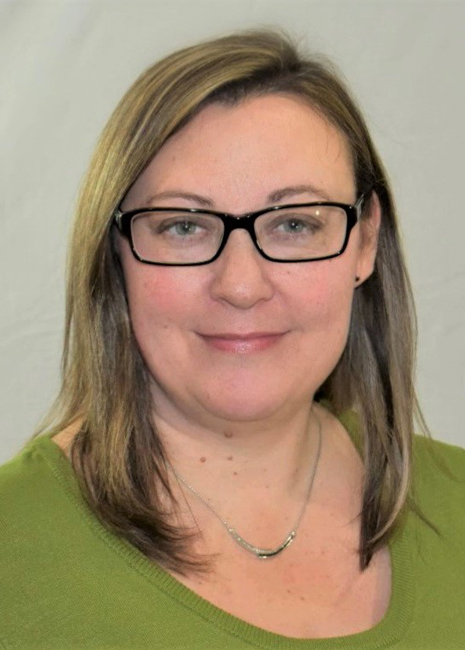Ascending to the CEO role of your company is the dream for many people. For Cini Little’s Kathleen Held, that dream came true in May during a nightmare period for the foodservice industry.
 Kathleen HeldThanks to her experience and the company’s forward-looking mentality, though, what could have been a bumpy transition has been a rather smooth one. Here she discusses Cini•Little’s approach to work life during COVID-19 and the future.
Kathleen HeldThanks to her experience and the company’s forward-looking mentality, though, what could have been a bumpy transition has been a rather smooth one. Here she discusses Cini•Little’s approach to work life during COVID-19 and the future.
Q: You became CEO of one of the industry’s most renowned consulting firms during a very historic moment in time. What was that like?
A: Me becoming CEO was something in the works for a while. A lot of people probably don’t know I grew up in the foodservice industry. My mom worked for Cini•Little as an estimator. And prior to that she worked for Marriott and a KEC (kitchen equipment contractor). So, I literally grew up under a desk in the Cini•Little offices. When you think of people like John Cini and William Eaton, I knew them growing up. And I interned here during college. So I worked in every department. Leading this company is something I’ve always wanted to do. All of the owners have been very close to me and are like mentors or father figures to me. I am marketing focused, so I come to the role with a different perspective and trying to run a company through that lens.
Q: How did the fact that you knew the business well help during this transition period?
A: Right now is a very different time with COVID requiring people to work remotely. In a lot of ways, though, we were already geared for that. I have four sons who are in scouting and the “be prepared” motto really applies here. As a company we were looking ahead and not in the rearview mirror. The technology was already in place that allowed us to change from working in the office one day to working remotely the next. We still have regular calls to share what’s going on and celebrate our wins together.
Q: Most consulting firms we’ve spoken with during the pandemic report their businesses have held up relatively well, meaning few jobs, if any, were cancelled. Has that been the case with Cini•Little?
A: We have felt little impact from COVID. Granted, there was a week or two where we were not sure what was going on. But since then we have had one of our best sales months in the company’s history and it happened during COVID. We have taken to hiring new staff because we had the capacity and the need for new talent. Our pipeline is filled. We’re busy and will look to hire more people to fill the holes we have as we grow at a healthy and deliberate pace.
Q: Given that few people are traveling at the moment, how has the way your firm designs and manages projects evolved during this time?
A: Ironically, one of the things we were trying to share with our clients prior to the pandemic was that regardless of where they are located, we could be there with them 24/7 via the use of technology. We’re having more video meetings and it’s all happening a little more efficiently. The downside is that you can’t walk through the facility. Our staff is starting to go out and do the punch lists as needed.
Q: The Cini•Little team works from design studios in different cities throughout the U.S. While everyone manages their own projects, the company still needs to function as one. What are some of the things you’re doing to promote unity, ensure everyone shares the same vision, etc.?
A: For us, some of it is standard practice. Each division has a weekly pipeline meeting and I participate so they know our support is always a phone call away. We have mentoring and directors calls to make sure our directors have the time they need to develop their skills. And we continue to host Cini•Little University. These are online professional development courses that cover such topical areas as design, business development, finance and even software.
Q: What’s one important lesson you’ve learned throughout this process?
A: We’ve been really focusing on the work-life balance. It’s not working at home anymore. It’s living at work. So we are working with everyone to maintain a work-life balance. Some of us who worked at home before knew how to do that. But for others they need to learn how to filter out the domestic distractions at certain times. Simultaneously, they have to find a way to have time away from their offices. Overall, though, it’s been an opportunity to grow together because our bonds are stronger. Our spouses and children and pets have appeared on these calls, so we know a little bit more about each other. It’s gotten more personal.
Q: Looking to the future, what excites you most about the foodservice industry?
A: More than anything, we’ve realized we took dining out for granted. For months we have not been able to do it. So when everyone goes back out we will be part of what they experience. And we help by creating facilities that are safer and focus even more on sanitation. We’re excited to be part of that. Whether we are creating memories with our families or the serendipitous work encounter that leads to a great idea, a lot of that happens while breaking bread together. Consumers may not think about the designers when this happens, but we are a part of that emotion and bonding.



